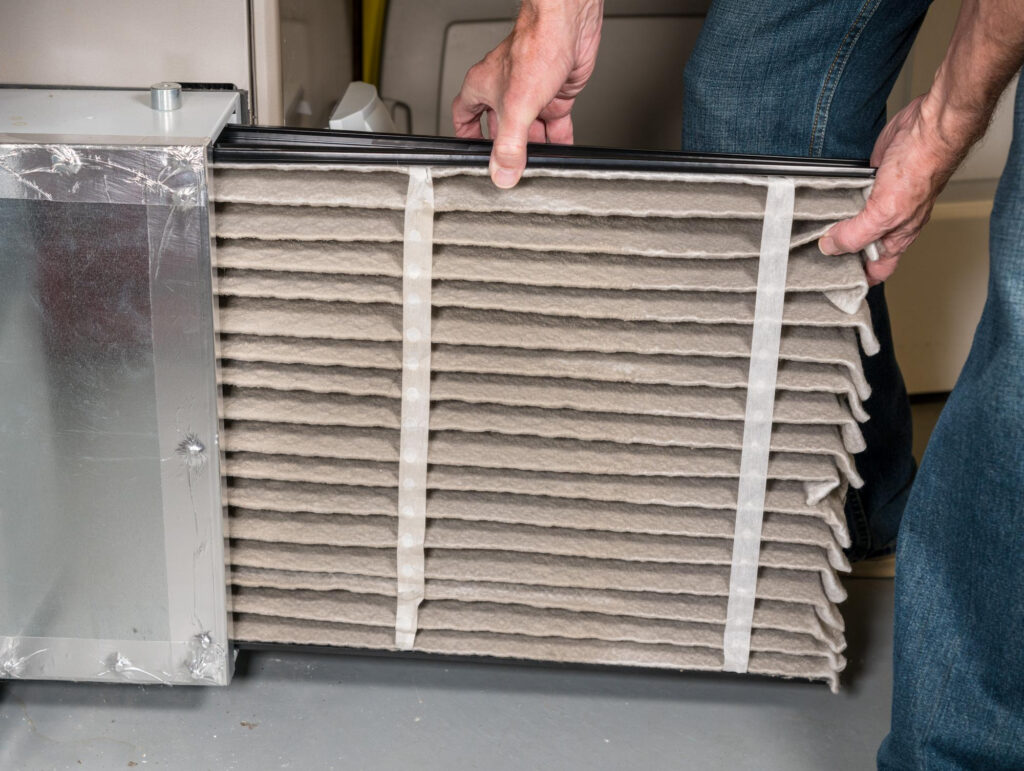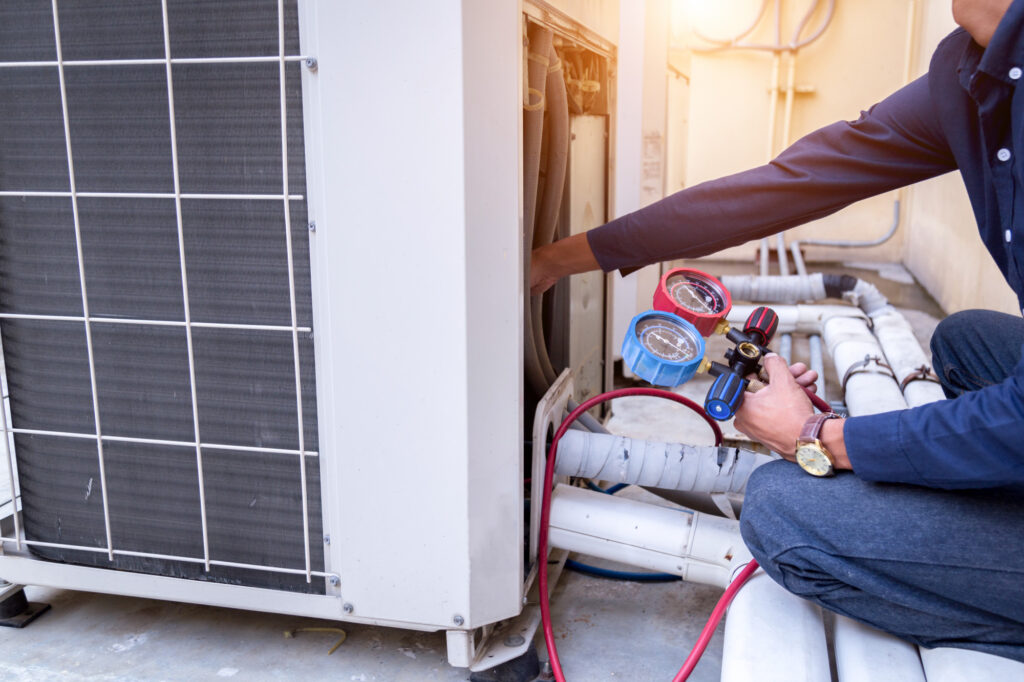The Benefits of Regular HVAC Maintenance
Regular HVAC maintenance ensures it operates efficiently, reducing energy costs and extending the unit’s lifespan. These small, consistent efforts lead to significant long-term savings.
The Silent Support System
Your home’s heating and cooling unit may seem like a silent support system, but when it comes to your energy bill, its presence is as loud as can be. This essential component of home comfort operates quietly in the background, ensuring that you and your family enjoy a comfortable living environment. However, the cost of maintaining this comfort can be quite substantial.
The Cost of Comfort
According to the Alliance to Save Energy, the average household energy expense is about $2,200 per year, and nearly half of that amount can be tied directly to costs associated with heating and/or cooling your home. That is pretty loud! If your HVAC system isn’t running efficiently, your costs only go up. Fortunately, ensuring your HVAC system is running at peak performance doesn’t always require an expensive repair bill. There are plenty of things you can do to make sure your HVAC system is up to the task with a little preventative maintenance.
Understanding Your Energy Bill
Average Household Energy Expenses
The energy bill is one of the most significant recurring expenses for any household. On average, American households spend around $2,200 annually on energy, with a substantial portion dedicated to heating and cooling.
The Impact of Heating and Cooling Costs
Nearly half of your energy bill is attributed to heating and cooling costs. This highlights the importance of having an efficient HVAC system, as even minor inefficiencies can lead to noticeable increases in your monthly expenses.
The Importance of HVAC Efficiency
Preventative HVAC Maintenance
Regular maintenance of your HVAC system can prevent costly repairs and ensure it operates efficiently. This not only extends the lifespan of your unit but also keeps your energy costs in check.
Cost-Effective Solutions
Many of the maintenance tasks that improve HVAC efficiency are simple and inexpensive. Implementing these solutions can lead to significant savings on your energy bill without the need for professional intervention.
Change the Furnace Filter

Significance of a Clean Filter
Changing your furnace filter is one of the simplest yet most effective ways to maintain your HVAC system. A clean filter ensures optimal airflow, reducing energy usage by up to 15%, according to the Alliance to Save Energy. Not sure how often to change your filter? Ask your HVAC professional what is best for your system.
Temporary vs Permanent Filters
Temporary filters need to be replaced monthly, while permanent filters should be cleaned regularly. Both types play a crucial role in maintaining air quality and system efficiency.
Monthly HVAC Maintenance Routine
Establishing a routine for checking and changing or cleaning your furnace filter is essential. Choose a memorable day, such as the first day of the month, to perform this task consistently. In addition to monthly HVAC maintenance it is also recommended to do a more thorough run through of your system at the season changes. In Wisconsin, that is usually going to land in May or June and then again in October or November depending on your preferences.
HVAC System Drainage
Function of the Drainage Hole
Air conditioners have a drainage hole at the base of the cabinet, beneath the evaporator fins. This hole allows excess moisture to drain away, preventing water damage and maintaining system efficiency.
Effective Cleaning Techniques
Though small, this hole can be kept clear with a paper clip or small piece of wire. Regular cleaning ensures that your air conditioner operates effectively, avoiding potential blockages that can hinder performance.
Dehumidifier Maintenance
Importance of a Dehumidifier
A dehumidifier helps maintain a comfortable indoor humidity level, especially in damp climates. Proper maintenance ensures it functions efficiently, contributing to overall HVAC performance.
Steps to Dry and Clean the Unit
Remove the outer casing of your dehumidifier and allow it to dry completely. Once dry, vacuum the entire unit to remove dirt and debris before reassembling it. This process keeps your dehumidifier in top condition.
Remove Obstructions around Your Exterior System
Impact of External Debris
Debris around your exterior air conditioning unit can obstruct airflow and reduce efficiency. Regularly inspecting and clearing the area around the unit is vital for optimal performance. Wisconsin’s fall brings all the tree’s leaves to the ground, during this time it is important to ensure your AC is free and clear of these leaves. Checking on your unit a few times a week and brushing the leaves away can make a big difference.
Maintaining a Clear Zone
Create a “clear zone” of at least two feet around your air conditioner. This space allows the unit to draw in the air it needs to regulate your home’s temperature effectively.
Clean the Bathroom Fans
Role of Bathroom Fans
Bathroom fans play a crucial role in ventilating moisture and odors. Keeping them clean ensures they operate efficiently, reducing the strain on your HVAC system.
Detailed Cleaning Process
Remove the fan covers and wash them with soap and water. Use a toothbrush to clean the fan blades thoroughly. Ensure the power is off before starting this task for safety.
Benefits of Smart Thermostats
Smart thermostats offer programmable settings that allow you to control your home’s temperature more efficiently. They adapt to your schedule, ensuring comfort when you’re home and savings when you’re away.
Energy Saving Features
These devices provide insights and recommendations for further energy savings. Following these tips can lead to additional reductions in your energy bill over time.
Schedule a HVAC Tune-Up
Professional Inspection
After completing the basic maintenance tasks, it’s beneficial to schedule a professional tune-up. An HVAC expert can identify issues that might go unnoticed and provide solutions to enhance system performance. As mentioned earlier, the opportune time for a system inspection will be at season changes. If you want to ensure you get timely service, schedule for mid-spring, and mid-fall. Don’t let the Wisconsin highs of summer or the lows of winter leave you uncomfortable.
Questions to Ask Your HVAC Professional
During the inspection, ask questions to understand your system better. This knowledge helps you maintain your HVAC unit more effectively and prevents future problems.
Long-Term Savings
By implementing these maintenance tips, you can enjoy a comfortable home without the hefty energy bills. Your HVAC system will thank you, and so will your wallet.

